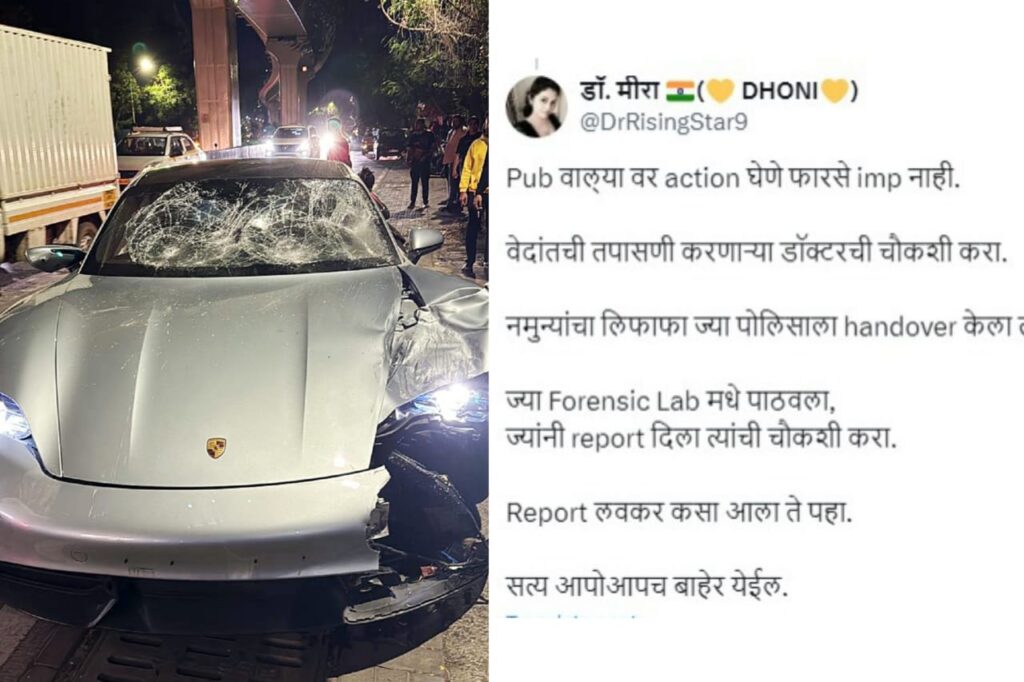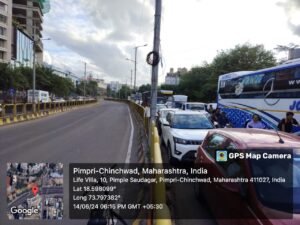Pune Porsche Car Accident: Many demand probing doctor and police officer handling blood test of accused

Pune Porsche Car Accident: Many demand probing doctor and police officer handling blood test of accused
New developments are emerging in the Pune accident case where a Porsche car, driven by a minor, collided with a bike in the Kalyaninagar area, resulting in the deaths of two bikers. The minor, Vedant Agarwal, son of prominent Pune builder Vishal Agarwal, was handed over to the police by bystanders. Accusations have been made against the police for delaying actions and manipulating the investigation. This incident has sparked widespread attention.
The key issue centers around Vedant Agarwal’s blood report, raising questions about why the police delayed testing his blood for intoxication. Amidst this controversy, a social media post has gone viral, demanding an investigation into the doctor who examined Vedant and the police officer responsible for handling the blood report envelope.
Dr. Meera’s Twitter account shared a post questioning the police investigation and Vedant’s blood report.
The tweet suggests that instead of focusing on the pub owners, authorities should investigate the doctor who conducted Vedant’s examination and the police officer to whom the blood report was handed. The post implies that uncovering these details will reveal the truth about the blood report.
Pune Police Commissioner Amitesh Kumar stated on Tuesday that Vedant’s blood report has not yet been received, leaving the situation unresolved. The viral post raises questions about which hospital or forensic lab conducted the test, which doctor performed it, and what findings about intoxication were recorded on the form.
How is Alcohol Testing Conducted in Government Hospitals?
The viral post also details the process of alcohol testing in government hospitals. When the accused is brought for an alcohol test, the police present a memo. If the accused is a minor, they are referred to as a “child in conflict with the law.” The doctor conducts a preliminary medical examination, recording vitals, pupil dilation, breath odor, coherence of speech, and ability to walk straight. This information is filled out on a chemical analysis form.
Blood samples are then taken, sealed, and labeled. The form includes the accused’s thumbprint, the name and batch number of the police officer, the examining doctor’s name and registration number, the doctor’s signature on each page, and the hospital’s stamp. The hospital case paper, chemical analysis form, and sealed blood samples are packed into an envelope and sealed with lacquer. The police officer’s details are recorded on the form and in the hospital’s MLC book.
This sealed envelope is taken to the Kalina Forensic Lab, where it takes at least two to three days to receive the chemical analysis (CA) report. Even if the accused has consumed a small amount of alcohol, the doctor can detect it and record comments on the form.
The viral post emphasizes the need for transparency and accountability in handling such sensitive cases, suggesting that thorough investigations into the involved medical and police personnel are crucial to uncovering the truth.








